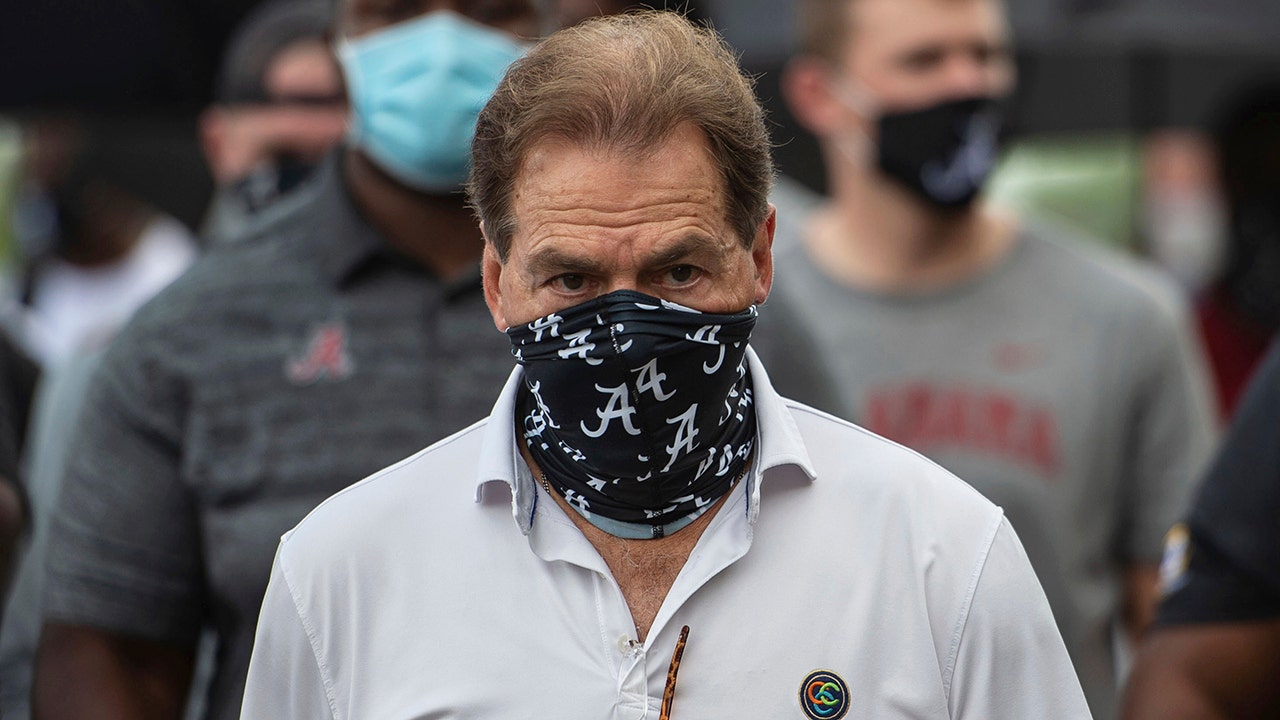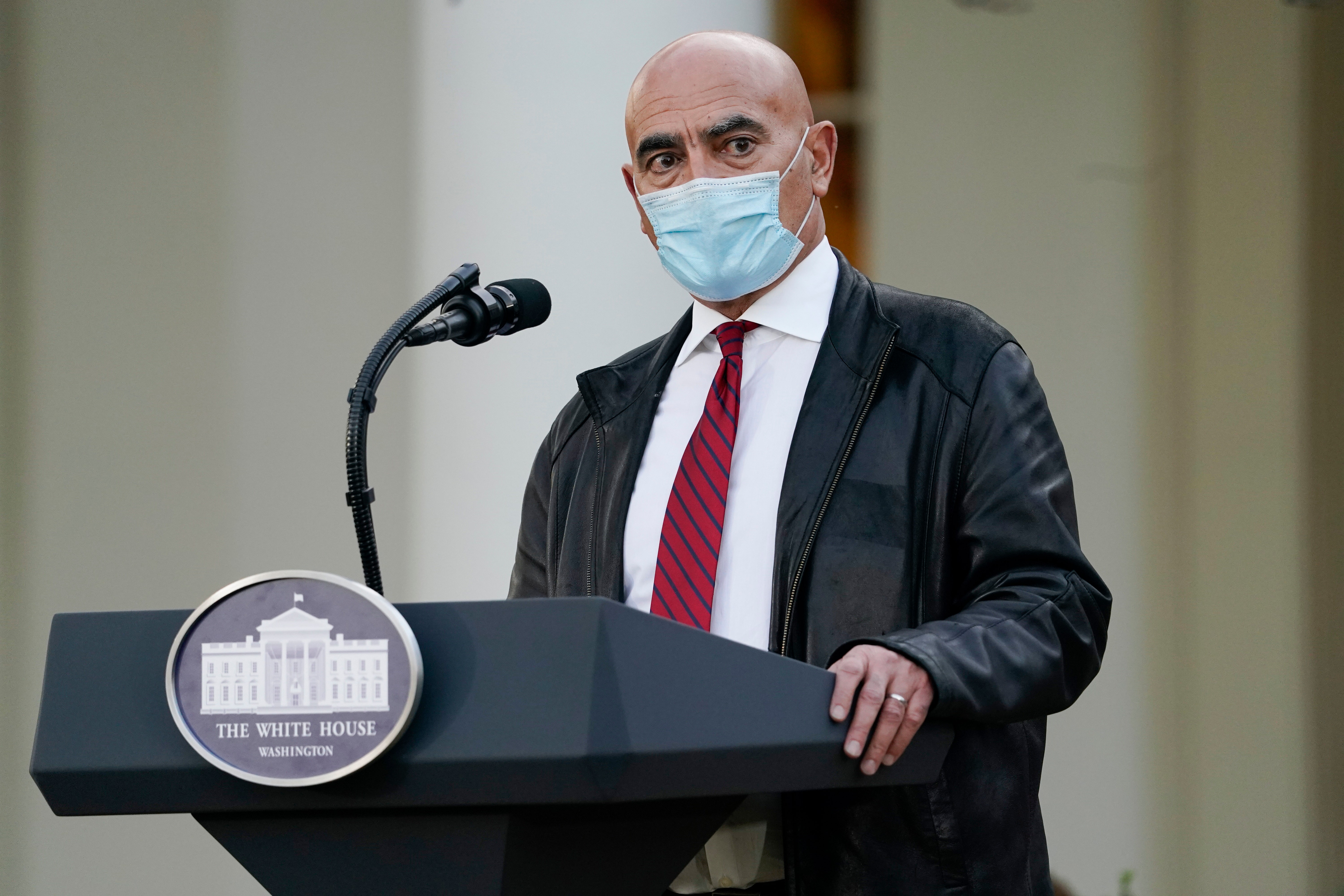First immunotherapy to be approved for a gastroesophageal cancer in the European Union
Approval based on Phase 3 ATTRACTION-3 trial showing statistically significant and clinically meaningful improvement in overall survival compared to chemotherapy
PRINCETON, N.J.–(BUSINESS WIRE)–$BMY #BMS—Bristol Myers Squibb (NYSE: BMY) today announced that the European Commission (EC) has approved Opdivo (nivolumab) for the treatment of adults with unresectable advanced, recurrent or metastatic esophageal squamous cell carcinoma (ESCC) after prior fluoropyrimidine- and platinum-based combination chemotherapy.
The EC’s decision is based on results from the Phase 3 ATTRACTION-3 trial, a study sponsored by Ono Pharmaceutical Co., Ltd. of Japan, which demonstrated a statistically significant and clinically meaningful improvement in overall survival (OS) in patients who received Opdivo versus chemotherapy. The safety profile for Opdivo was favorable compared with chemotherapy and consistent with previously reported studies of Opdivo in other solid tumors.
“Today’s approval marks a critically important milestone for those living with esophageal squamous cell carcinoma, as this is the first time an immunotherapy treatment option has been approved in the European Union for this patient population,” said Ian M. Waxman, M.D., development lead, gastrointestinal cancers, Bristol Myers Squibb. “We are proud of our work in advancing treatment options for people living with upper gastrointestinal cancers, and we look forward to working with European stakeholders to bring Opdivo to more eligible patients who may benefit.”
In addition to this approval in the EU, Opdivo has been approved in five countries, including the United States and Japan, for the second-line treatment of patients with unresectable advanced, recurrent or metastatic ESCC. Bristol Myers Squibb thanks the patients and investigators involved in the ATTRACTION-3 clinical trial for their important contributions.
ATTRACTION-3 Efficacy and Safety Results
In the Phase 3 ATTRACTION-3 trial, which had a primary endpoint of OS:
- Opdivo reduced risk of death by 23%, compared to chemotherapy alone [Hazard Ratio (HR) 0.77; 95% Confidence Interval (CI): 0.62 to 0.96; p=0.019].
- Median OS with Opdivo was 10.9 months (95% CI: 9.2 to 13.3) compared to 8.4 months (95% CI: 7.2 to 9.9) with chemotherapy alone, demonstrating a 2.5-month improvement.
- The Opdivo arm showed 12- and 18-month OS rates of 47% (95% CI: 40 to 54) and 31% (95% CI: 24 to 37), respectively, versus 34% (95% CI: 28 to 41) and 21% (95% CI: 15 to 27) among patients in the chemotherapy arm. Survival benefit with Opdivo was observed regardless of tumor PD-L1 expression levels.
- Objective response rates (ORR) between the Opdivo and chemotherapy arms were comparable at 19% (95% CI: 14 to 26) and 22% (95% CI: 15 to 29), respectively.
- Median duration of response (DoR) for patients was substantially increased in the Opdivo arm at 6.9 months (95% CI: 5.4 to 11.1) versus 3.9 months (95% CI: 2.8 to 4.2) in the chemotherapy arm.
- An exploratory analysis of patient-reported outcomes showed significant overall improvement in quality of life with Opdivo versus chemotherapy. Fewer treatment-related adverse events (TRAEs) were reported with Opdivo versus chemotherapy, with a rate of 66% for any grade TRAEs in patients receiving Opdivo compared to 95% for those patients receiving chemotherapy. Patients in the Opdivo arm also experienced a lower incidence of Grade 3 or 4 TRAEs compared to those in the chemotherapy arm (18% versus 63%), and the percentage of patients experiencing TRAEs leading to discontinuation was the same in both arms (9%).
About ATTRACTION-3
ATTRACTION-3 (ONO-4538-24/CA209-473; NCT02569242) is a Phase 3, multi-center, randomized, open-label global study, evaluating Opdivo versus chemotherapy (docetaxel or paclitaxel) for patients with esophageal cancer refractory or intolerant to first-line combination therapy with fluoropyrimidine- and platinum-based drugs. Patient enrollment occurred predominantly in Asia, with the remainder in the United States and Europe. Patients were treated until disease progression or unacceptable toxicity. The primary endpoint of the trial was overall survival (OS). Secondary endpoints included investigator-assessed objective response rate (ORR), progression-free survival (PFS), disease control rate, duration of response and safety.
About Esophageal Cancer
Esophageal cancer is the seventh most common cancer and the sixth most common cause of death from cancer worldwide. The five-year relative survival rate is 10% or less for patients diagnosed with metastatic disease. Each year, 53,000 new cases of esophageal cancer are diagnosed in Europe. The two most common types of esophageal cancer are adenocarcinoma and squamous cell carcinoma, the latter accounting for approximately 60% of all esophageal cancer cases diagnosed in Europe. The majority of cases are diagnosed in the advanced setting and impact a patient’s daily life, including their ability to eat and drink.
Bristol Myers Squibb: Creating a Better Future for People with Cancer
Bristol Myers Squibb is inspired by a single vision — transforming people’s lives through science. The goal of the company’s cancer research is to deliver medicines that offer each patient a better, healthier life and to make cure a possibility. Building on a legacy across a broad range of cancers that have changed survival expectations for many, Bristol Myers Squibb researchers are exploring new frontiers in personalized medicine, and through innovative digital platforms, are turning data into insights that sharpen their focus. Deep scientific expertise, cutting-edge capabilities and discovery platforms enable the company to look at cancer from every angle. Cancer can have a relentless grasp on many parts of a patient’s life, and Bristol Myers Squibb is committed to taking actions to address all aspects of care, from diagnosis to survivorship. Because as a leader in cancer care, Bristol Myers Squibb is working to empower all people with cancer to have a better future.
About Opdivo®
Opdivo is a programmed death-1 (PD-1) immune checkpoint inhibitor that is designed to uniquely harness the body’s own immune system to help restore anti-tumor immune response. By harnessing the body’s own immune system to fight cancer, Opdivo has become an important treatment option across multiple cancers.
Opdivo’s leading global development program is based on Bristol Myers Squibb’s scientific expertise in the field of Immuno-Oncology and includes a broad range of clinical trials across all phases, including Phase 3, in a variety of tumor types. To date, the Opdivo clinical development program has treated more than 35,000 patients. The Opdivo trials have contributed to gaining a deeper understanding of the potential role of biomarkers in patient care, particularly regarding how patients may benefit from Opdivo across the continuum of PD-L1 expression.
In July 2014, Opdivo was the first PD-1 immune checkpoint inhibitor to receive regulatory approval anywhere in the world. Opdivo is currently approved in more than 65 countries, including the United States, the European Union, Japan and China. In October 2015, the Company’s Opdivo and Yervoy combination regimen was the first Immuno-Oncology combination to receive regulatory approval for the treatment of metastatic melanoma and is currently approved in more than 50 countries, including the United States and the European Union.
INDICATIONS
OPDIVO® (nivolumab), as a single agent, is indicated for the treatment of patients with unresectable or metastatic melanoma.
OPDIVO® (nivolumab), in combination with YERVOY® (ipilimumab), is indicated for the treatment of patients with unresectable or metastatic melanoma.
OPDIVO® (nivolumab), in combination with YERVOY® (ipilimumab), is indicated for the first-line treatment of adult patients with metastatic non-small cell lung cancer (NSCLC) whose tumors express PD-L1 (≥1%) as determined by an FDA-approved test, with no EGFR or ALK genomic tumor aberrations.
OPDIVO® (nivolumab), in combination with YERVOY® (ipilimumab) and 2 cycles of platinum-doublet chemotherapy, is indicated for the first-line treatment of adult patients with metastatic or recurrent non-small cell lung cancer (NSCLC), with no EGFR or ALK genomic tumor aberrations.
OPDIVO® (nivolumab) is indicated for the treatment of patients with metastatic non-small cell lung cancer (NSCLC) with progression on or after platinum-based chemotherapy. Patients with EGFR or ALK genomic tumor aberrations should have disease progression on FDA-approved therapy for these aberrations prior to receiving OPDIVO.
OPDIVO® (nivolumab) is indicated for the treatment of patients with metastatic small cell lung cancer (SCLC) with progression after platinum-based chemotherapy and at least one other line of therapy. This indication is approved under accelerated approval based on overall response rate and duration of response. Continued approval for this indication may be contingent upon verification and description of clinical benefit in confirmatory trials.
OPDIVO® (nivolumab), in combination with YERVOY® (ipilimumab), is indicated for the first-line treatment of adult patients with unresectable malignant pleural mesothelioma (MPM).
OPDIVO® (nivolumab) is indicated for the treatment of patients with advanced renal cell carcinoma (RCC) who have received prior anti-angiogenic therapy.
OPDIVO® (nivolumab), in combination with YERVOY® (ipilimumab), is indicated for the treatment of patients with intermediate or poor risk, previously untreated advanced renal cell carcinoma (RCC).
OPDIVO® (nivolumab) is indicated for the treatment of adult patients with classical Hodgkin lymphoma (cHL) that has relapsed or progressed after autologous hematopoietic stem cell transplantation (HSCT) and brentuximab vedotin or after 3 or more lines of systemic therapy that includes autologous HSCT. This indication is approved under accelerated approval based on overall response rate. Continued approval for this indication may be contingent upon verification and description of clinical benefit in confirmatory trials.
OPDIVO® (nivolumab) is indicated for the treatment of patients with recurrent or metastatic squamous cell carcinoma of the head and neck (SCCHN) with disease progression on or after platinum-based therapy.
OPDIVO® (nivolumab) is indicated for the treatment of patients with locally advanced or metastatic urothelial carcinoma who have disease progression during or following platinum-containing chemotherapy or have disease progression within 12 months of neoadjuvant or adjuvant treatment with platinum-containing chemotherapy. This indication is approved under accelerated approval based on tumor response rate and duration of response. Continued approval for this indication may be contingent upon verification and description of clinical benefit in confirmatory trials.
OPDIVO® (nivolumab), as a single agent, is indicated for the treatment of adult and pediatric (12 years and older) patients with microsatellite instability-high (MSI-H) or mismatch repair deficient (dMMR) metastatic colorectal cancer (CRC) that has progressed following treatment with a fluoropyrimidine, oxaliplatin, and irinotecan. This indication is approved under accelerated approval based on overall response rate and duration of response. Continued approval for this indication may be contingent upon verification and description of clinical benefit in confirmatory trials.
OPDIVO® (nivolumab), in combination with YERVOY® (ipilimumab), is indicated for the treatment of adults and pediatric patients 12 years and older with microsatellite instability-high (MSI-H) or mismatch repair deficient (dMMR) metastatic colorectal cancer (CRC) that has progressed following treatment with a fluoropyrimidine, oxaliplatin, and irinotecan. This indication is approved under accelerated approval based on overall response rate and duration of response. Continued approval for this indication may be contingent upon verification and description of clinical benefit in confirmatory trials.
OPDIVO® (nivolumab) is indicated for the treatment of patients with hepatocellular carcinoma (HCC) who have been previously treated with sorafenib. This indication is approved under accelerated approval based on overall response rate and duration of response. Continued approval for this indication may be contingent upon verification and description of clinical benefit in the confirmatory trials.
OPDIVO® (nivolumab), in combination with YERVOY® (ipilimumab), is indicated for the treatment of patients with hepatocellular carcinoma (HCC) who have been previously treated with sorafenib. This indication is approved under accelerated approval based on overall response rate and duration of response. Continued approval for this indication may be contingent upon verification and description of clinical benefit in the confirmatory trials.
OPDIVO® (nivolumab) is indicated for the adjuvant treatment of patients with melanoma with involvement of lymph nodes or metastatic disease who have undergone complete resection.
OPDIVO® (nivolumab) is indicated for the treatment of patients with unresectable advanced, recurrent or metastatic esophageal squamous cell carcinoma (ESCC) after prior fluoropyrimidine- and platinum-based chemotherapy.
IMPORTANT SAFETY INFORMATION
Severe and Fatal Immune-Mediated Adverse Reactions
Immune-mediated adverse reactions listed herein may not include all possible severe and fatal immune-mediated adverse reactions.
Immune-mediated adverse reactions, which may be severe or fatal, can occur in any organ system or tissue. While immune-mediated adverse reactions usually manifest during treatment, they can also occur after discontinuation of OPDIVO or YERVOY. Early identification and management are essential to ensure safe use of OPDIVO and YERVOY. Monitor for signs and symptoms that may be clinical manifestations of underlying immune-mediated adverse reactions. Evaluate clinical chemistries including liver enzymes, creatinine, adrenocorticotropic hormone (ACTH) level, and thyroid function at baseline and periodically during treatment with OPDIVO and before each dose of YERVOY. In cases of suspected immune-mediated adverse reactions, initiate appropriate workup to exclude alternative etiologies, including infection. Institute medical management promptly, including specialty consultation as appropriate.
Withhold or permanently discontinue OPDIVO and YERVOY depending on severity (please see section 2 Dosage and Administration in the accompanying Full Prescribing Information). In general, if OPDIVO or YERVOY interruption or discontinuation is required, administer systemic corticosteroid therapy (1 to 2 mg/kg/day prednisone or equivalent) until improvement to Grade 1 or less. Upon improvement to Grade 1 or less, initiate corticosteroid taper and continue to taper over at least 1 month. Consider administration of other systemic immunosuppressants in patients whose immune-mediated adverse reactions are not controlled with corticosteroid therapy. Toxicity management guidelines for adverse reactions that do not necessarily require systemic steroids (e.g., endocrinopathies and dermatologic reactions) are discussed below.
Immune-Mediated Pneumonitis
OPDIVO and YERVOY can cause immune-mediated pneumonitis. The incidence of pneumonitis is higher in patients who have received prior thoracic radiation. In patients receiving OPDIVO monotherapy, immune-mediated pneumonitis occurred in 3.1% (61/1994) of patients, including Grade 4 (<0.1%), Grade 3 (0.9%), and Grade 2 (2.1%). In HCC patients receiving OPDIVO 1 mg/kg with YERVOY 3 mg/kg every 3 weeks, immune-mediated pneumonitis occurred in 10% (5/49) of patients. In patients receiving OPDIVO 3 mg/kg with YERVOY 1 mg/kg every 3 weeks, immune-mediated pneumonitis occurred in 3.9% (26/666) of patients, including Grade 3 (1.4%) and Grade 2 (2.6%). In NSCLC patients receiving OPDIVO 3 mg/kg every 2 weeks with YERVOY 1 mg/kg every 6 weeks, immune-mediated pneumonitis occurred in 9% (50/576) of patients, including Grade 4 (0.5%), Grade 3 (3.5%), and Grade 2 (4.0%). Four patients (0.7%) died due to pneumonitis.
Immune-Mediated Colitis
OPDIVO and YERVOY can cause immune-mediated colitis, which may be fatal. A common symptom included in the definition of colitis was diarrhea. Cytomegalovirus (CMV) infection/reactivation has been reported in patients with corticosteroid-refractory immune-mediated colitis. In cases of corticosteroid-refractory colitis, consider repeating infectious workup to exclude alternative etiologies. In patients receiving OPDIVO monotherapy, immune-mediated colitis occurred in 2.9% (58/1994) of patients, including Grade 3 (1.7%) and Grade 2 (1%). In patients receiving OPDIVO 1 mg/kg with YERVOY 3 mg/kg every 3 weeks, immune-mediated colitis occurred in 25% (115/456) of patients, including Grade 4 (0.4%), Grade 3 (14%) and Grade 2 (8%). In patients receiving OPDIVO 3 mg/kg with YERVOY 1 mg/kg every 3 weeks, immune-mediated colitis occurred in 9% (60/666) of patients, including Grade 3 (4.4%) and Grade 2 (3.7%).
In a separate Phase 3 trial of YERVOY 3 mg/kg monotherapy, immune-mediated colitis occurred in 12% (62/511) of patients, including Grade 3-5 (7%) and Grade 2 (5%).
Immune-Mediated Hepatitis
OPDIVO and YERVOY can cause immune-mediated hepatitis. In patients receiving OPDIVO monotherapy, immune-mediated hepatitis occurred in 1.8% (35/1994) of patients, including Grade 4 (0.2%), Grade 3 (1.3%), and Grade 2 (0.4%). In patients receiving OPDIVO 1 mg/ kg with YERVOY 3 mg/kg every 3 weeks, immune-mediated hepatitis occurred in 15% (70/456) of patients, including Grade 4 (2.4%), Grade 3 (11%), and Grade 2 (1.8%). In patients receiving OPDIVO 3 mg/kg with YERVOY 1 mg/kg every 3 weeks, immune-mediated hepatitis occurred in 7% (48/666) of patients, including Grade 4 (1.2%), Grade 3 (4.9%), and Grade 2 (0.4%).
In a separate Phase 3 trial of YERVOY 3 mg/kg monotherapy, immune-mediated hepatitis occurred in 4.1% (21/511) of patients, including Grade 3-5 (1.6%) and Grade 2 (2.5%).
Immune-Mediated Endocrinopathies
OPDIVO and YERVOY can cause primary or secondary adrenal insufficiency, immune-mediated hypophysitis, immune-mediated thyroid disorders, and Type 1 diabetes mellitus, which can present with diabetic ketoacidosis. Withhold OPDIVO and YERVOY depending on severity (please see section 2 Dosage and Administration in the accompanying Full Prescribing Information). For Grade 2 or higher adrenal insufficiency, initiate symptomatic treatment, including hormone replacement as clinically indicated. Hypophysitis can present with acute symptoms associated with mass effect such as headache, photophobia, or visual field defects. Hypophysitis can cause hypopituitarism; initiate hormone replacement as clinically indicated. Thyroiditis can present with or without endocrinopathy. Hypothyroidism can follow hyperthyroidism; initiate hormone replacement or medical management as clinically indicated. Monitor patients for hyperglycemia or other signs and symptoms of diabetes; initiate treatment with insulin as clinically indicated.
In patients receiving OPDIVO monotherapy, adrenal insufficiency occurred in 1% (20/1994), including Grade 3 (0.4%) and Grade 2 (0.6%). In patients receiving OPDIVO 1 mg/kg with YERVOY 3 mg/kg every 3 weeks, adrenal insufficiency occurred in 8% (35/456), including Grade 4 (0.2%), Grade 3 (2.4%), and Grade 2 (4.2%). In patients receiving OPDIVO 3 mg/kg with YERVOY 1 mg/kg every 3 weeks, adrenal insufficiency occurred in 7% (48/666) of patients, including Grade 4 (0.3%), Grade 3 (2.5%), and Grade 2 (4.1%).
In patients receiving OPDIVO monotherapy, hypophysitis occurred in 0.6% (12/1994) of patients, including Grade 3 (0.2%) and Grade 2 (0.3%). In patients receiving OPDIVO 1 mg/kg with YERVOY 3 mg/kg every 3 weeks, hypophysitis occurred in 9% (42/456), including Grade 3 (2.4%) and Grade 2 (6%). In patients receiving OPDIVO 3 mg/kg with YERVOY 1 mg/kg every 3 weeks, hypophysitis occurred in 4.4% (29/666) of patients, including Grade 4 (0.3%), Grade 3 (2.4%), and Grade 2 (0.9%).
In patients receiving OPDIVO monotherapy, thyroiditis occurred in 0.6% (12/1994) of patients, including Grade 2 (0.2%). In patients receiving OPDIVO 3 mg/kg with YERVOY 1 mg/kg every 3 weeks, thyroiditis occurred in 2.7% (22/666) of patients, including Grade 3 (4.5%) and Grade 2 (2.2%).
In patients receiving OPDIVO monotherapy, hyperthyroidism occurred in 2.7% (54/1994) of patients, including Grade 3 (<0.1%) and Grade 2 (1.2%). In patients receiving OPDIVO 1 mg/kg with YERVOY 3 mg/kg every 3 weeks, hyperthyroidism occurred in 9% (42/456) of patients, including Grade 3, (0.9%) and Grade 2 (4.2%). In patients receiving OPDIVO 3 mg/kg with YERVOY 1 mg/kg every 3 weeks, hyperthyroidism occurred in 12% (80/666) of patients, including Grade 3 (0.6%), and Grade 2 (4.5%).
In patients receiving OPDIVO monotherapy, hypothyroidism occurred in 8% (163/1994) of patients, including Grade 3 (0.2%) and Grade 2 (4.8%). In patients receiving OPDIVO 1 mg/kg with YERVOY 3 mg/kg every 3 weeks, hypothyroidism occurred in 20% (91/456) of patients, including Grade 3 (0.4%) and Grade 2 (11%). In patients receiving OPDIVO 3 mg/kg with YERVOY 1 mg/kg every 3 weeks, hypothyroidism occurred in 18% (122/666) of patients, including Grade 3 (0.6%) and Grade 2 (11%).
In patients receiving OPDIVO monotherapy, diabetes occurred in 0.9% (17/1994) of patients, including Grade 3 (0.4%) and Grade 2 (0.3%), and 2 cases of diabetic ketoacidosis. In patients receiving OPDIVO 3 mg/kg with YERVOY 1 mg/kg every 3 weeks, diabetes occurred in 2.7% (15/666) of patients, including Grade 4 (0.6%), Grade 3 (0.3%), and Grade 2 (0.9%).
In a separate Phase 3 trial of YERVOY 3 mg/kg monotherapy, Grade 2-5 immune-mediated endocrinopathies occurred in 4% (21/511) of patients. Severe to life-threatening (Grade 3-4) endocrinopathies occurred in 9 (1.8%) patients. All 9 patients had hypopituitarism, and some had additional concomitant endocrinopathies such as adrenal insufficiency, hypogonadism, and hypothyroidism. Six of the 9 patients were hospitalized for severe endocrinopathies. Moderate (Grade 2) endocrinopathy occurred in 12 patients (2.3%), including hypothyroidism, adrenal insufficiency, hypopituitarism, hyperthyroidism and Cushing’s syndrome.
Immune-Mediated Nephritis with Renal Dysfunction
OPDIVO and YERVOY can cause immune-mediated nephritis. In patients receiving OPDIVO monotherapy, immune-mediated nephritis and renal dysfunction occurred in 1.2% (23/1994) of patients, including Grade 4 (<0.1%), Grade 3 (0.5%), and Grade 2 (0.6%). In patients receiving OPDIVO 3 mg/kg with YERVOY 1 mg/kg every 3 weeks, immune-mediated nephritis with renal dysfunction occurred in 4.1% (27/666) of patients, including Grade 4 (0.6%), Grade 3 (1.1%), and Grade 2 (2.2%).
Immune-Mediated Dermatologic Adverse Reactions
OPDIVO can cause immune-mediated rash or dermatitis. Exfoliative dermatitis, including Stevens-Johnson syndrome (SJS), toxic epidermal necrolysis (TEN), and drug rash with eosinophilia and systemic symptoms (DRESS) has occurred with PD-1/PD-L1 blocking antibodies.
Contacts
Bristol Myers Squibb
Media Inquiries:
Investors:
Tim Power
609-252-7509




















